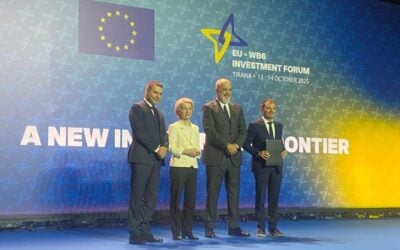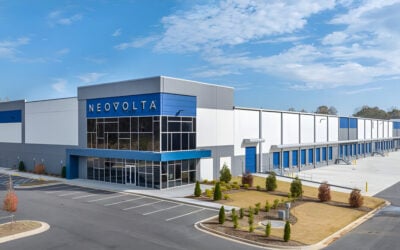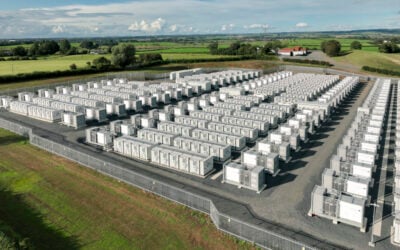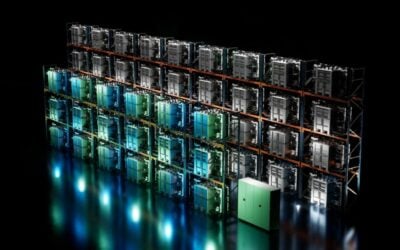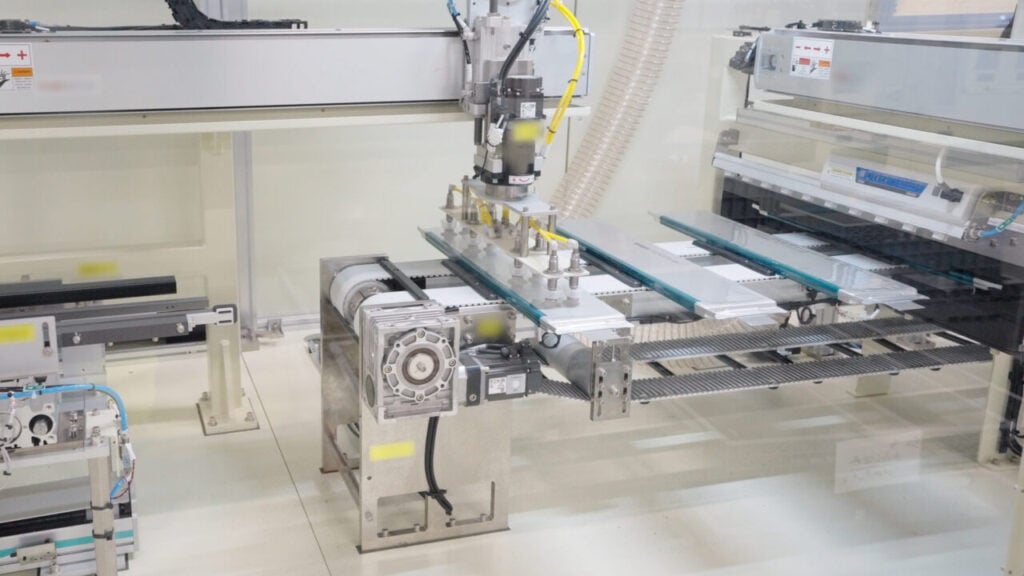
Tesla could be “hedging its bets” on battery cell supply, if a deal announced earlier this week by LG Energy Solution really is with the US electric vehicle (EV) and battery energy storage system (BESS) company.
LG Energy Solution announced the KRW594 billion (US$4.25 billion) lithium iron phosphate (LFP) battery supply contract to the Korea Stock Exchange (KSE) earlier this week (30 July).
The company, listed on the KSE’s Korea Composite Stock Price Index (KOSPI), did not disclose the customer’s name. However, Reuters reported that an anonymous source “familiar with the matter” said the deal was with Tesla, for battery cells produced at LG Energy Solution (LG ES) lines in Holland, Michigan, US.
While LG ES also did not provide the volume of battery sales covered by the three-year agreement from August 2027 to the end of July 2030, Solar Media Market Research analyst Charlotte Gisbourne estimated it would be around 60-70GWh, based on comparable deals.
Try Premium for just $1
- Full premium access for the first month at only $1
- Converts to an annual rate after 30 days unless cancelled
- Cancel anytime during the trial period
Premium Benefits
- Expert industry analysis and interviews
- Digital access to PV Tech Power journal
- Exclusive event discounts
Or get the full Premium subscription right away
Or continue reading this article for free
A spokesperson for LG ES Vertech, the battery manufacturer’s BESS integrator arm in the US, told Energy-Storage.news the company could not disclose the customer details.
However, it would likely be a good fit for both companies. LG ES recently brought online its first US LFP production lines at the Michigan plant, ramping to 17GWh annual production capacity by the end of this year.
The Korean company announced in quarterly results disclosures a few days ago that it intends to ramp up aggressively to more than 30GWh of annual LFP production capacity in the US by the end of 2026. While a significant portion of its cells will go in-house to subsidiary LG ES Vertech for the system integrator’s projects, others are sold to third-party integrators.
LG ES: First mover advantage ahead of FEOC rules for tax credits
With the US now introducing restrictions on investment tax credit (ITC) and production tax credit (PTC) incentives for material assistance from Chinese companies based on foreign entity of concern (FEOC) rules amid an ongoing tariff tug-of-war between the two countries, LG Energy Solution looks set to benefit.
The manufacturer has long invested in EV battery production in the US and was able to repurpose nickel manganese cobalt (NMC) lithium-ion (Li-ion) cell production lines to LFP for stationary applications, investing US$1.4 billion to retool the Holland plant.
In an Energy-Storage.news webinar on the impacts of the US HR1 reconciliation bill and tariffs on the energy storage industry this week, Clean Energy Associates (CEA) market intelligence director for storage Daniel Finn-Foley said LG ES looks set to become the US’s biggest LFP battery manufacturer and supplier over the next few years as a result.
LG ES executives have long discussed the need to make a trade-off between EV and BESS market demand from a supply perspective. Tesla CEO Elon Musk has made comments to a similar effect in quarterly earnings calls.
At the same time, the Tesla’s BESS supply chain is also exposed to tariffs and FEOC rule compliance challenges due to the fact that the LFP cells used in Megapacks are sourced from China.
A recent article for this site on the dynamics of cell supplier and system integrator relationships, co-authored by analyst Charlotte Gisbourne and Energy-Storage.news senior reporter Cameron Murray, highlighted that Tesla’s BESS cell suppliers are currently CATL, EVE Energy and BYD, all Chinese manufacturers.
EV-BESS production capacity trade-off
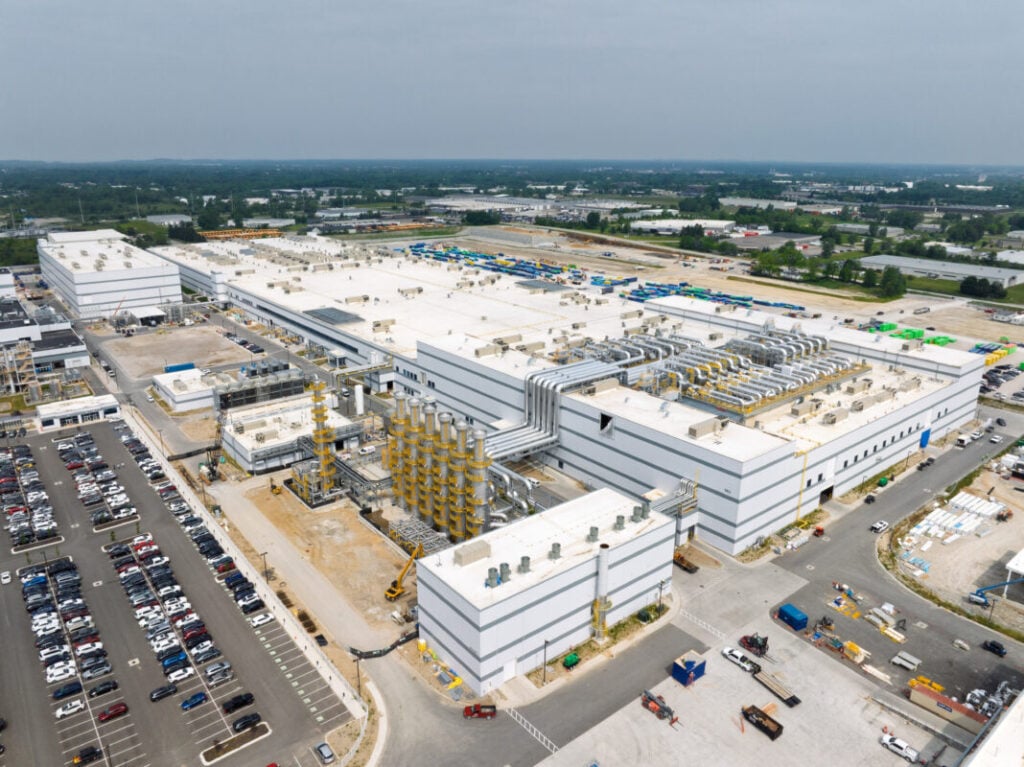
VP of energy and charging Michael Snyder confirmed this week, as Tesla announced its Q2 2025 financial results, that in-house LFP production is due to begin before the end of this year.
The annual production capacity of those new lines, in Sparks, Nevada, has not been disclosed. Tesla has one 40GWh Megapack BESS assembly facility in California and another of equal size under construction in Texas within the US, in addition to another in Shanghai, China, which recently began mass production for non-US projects.
So, with Tesla already building its own LFP capacity, that trade-off between EV and BESS demand could be the driver of the latest deal, Solar Media Market Research’s Charlotte Gisbourne told Energy-Storage.news.
“Having this deal would be a safety net for Tesla if the energy storage market does not continue its strong trajectory and the company decides to pivot the cells due to be produced this year towards electric vehicles in the future,” Gisbourne, author of the quarterly BatteryStorageTech BESS Bankability report, which has ranked Tesla as one of only two ‘AAA-rated’ suppliers in the industry, said.
“If this deal is real, my interpretation is that the company is hedging its bets.”
Currently, EV demand is on a slowed growth trajectory than many had anticipated, particularly with the HR1 legislation ending the US$7,500 rebates and other incentives for electric vehicles in the US.
However, EV makers are starting to adopt LFP technologies for medium and shorter-range automotive applications, whereas previously it was largely the technology favoured by the stationary storage sector. At the same time, although both LG ES and Tesla have seen BESS demand grow faster than EVs in the past few quarters, electric mobility retains the bigger share of their overall business by some distance.
A deal with LG ES for the most sought-after chemistry on top of its own in-house production means Tesla would be in a strong position to fulfil orders in both its automotive and energy businesses, Gisbourne said.


